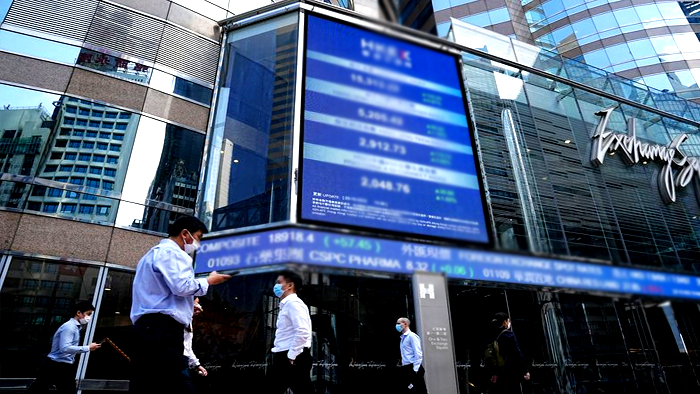Most Asian stock markets went up on Wednesday, but investors were still nervous because of China’s COVID policies and an upcoming speech by Jerome Powell, the chairman of the Federal Reserve.
Still, most regional stocks were set to make big gains in November because investors bought back into markets that had been heavily sold off because they thought the Federal Reserve would raise interest rates less.
The Hang Seng index in Hong Kong was by far the best performer in the region in November, rising nearly 25% after falling to a 13-year low in October.
Related: Amid dovish Fed indications, Asian stocks decline but end the week higher.
The index went up by 0.8% on Wednesday. Property stocks did the best because the Chinese government lifted a ban on equity financing in the sector.
But worries about China’s COVID policies held back bigger gains. In the past few weeks, there have been more and more protests against the government because of its strict zero-COVID policy.
Both the Shanghai Shenzhen CSI 300 and Shanghai Composite indexes in China went up by 0.2%, and the month was expected to end with a gain of about 2%. Tuesday was a good day for the two indexes. There have been rumours that Beijing intends to change its “zero-COVID” policy, but the government has yet to comment.
Data also showed that Chinese business activity dropped even more in November. This shows that China’s zero-COVID policy is still hurting its economy.
Broader Asian markets also went up on Tuesday because of rumours about China, but stocks seemed to lose steam on Wednesday. South Korea’s KOSPI was the only one that went up, by 1.2%, and it was also on track to gain over 7% in a month. But the index was still trading close to its lows for the year.
After going up to record highs on Tuesday, Indian stock markets were flat on Wednesday. The Nifty 50 and BSE Sensex 30 indexes saw buying from all sectors because people were feeling better about the South Asian economy.
Japan’s Nikkei 225 index fell 0.4% after data showed that industrial production in the country fell more than expected in October. This shows that rising inflation and a weak yen continue to put pressure on the economy.
Now, the markets are waiting for Fed Chair Jerome Powell’s speech later in the day for more information about U.S. monetary policy.
The minutes of the Fed meeting showed that the central bank is likely to slow the rate at which it raises interest rates in the coming months. However, policymakers have warned that borrowing rates will remain high until inflation clearly slows.
Related: China lags, but Asian stocks are supported by reduced Fed rate hike wagers.
In October, consumer inflation in the U.S. stayed close to 8%, which is well above the Fed’s 2% annual goal.
This year, Asian markets lost a lot of money because of rising interest rates, which tightened liquidity and made investors worry about the future of the economy.

